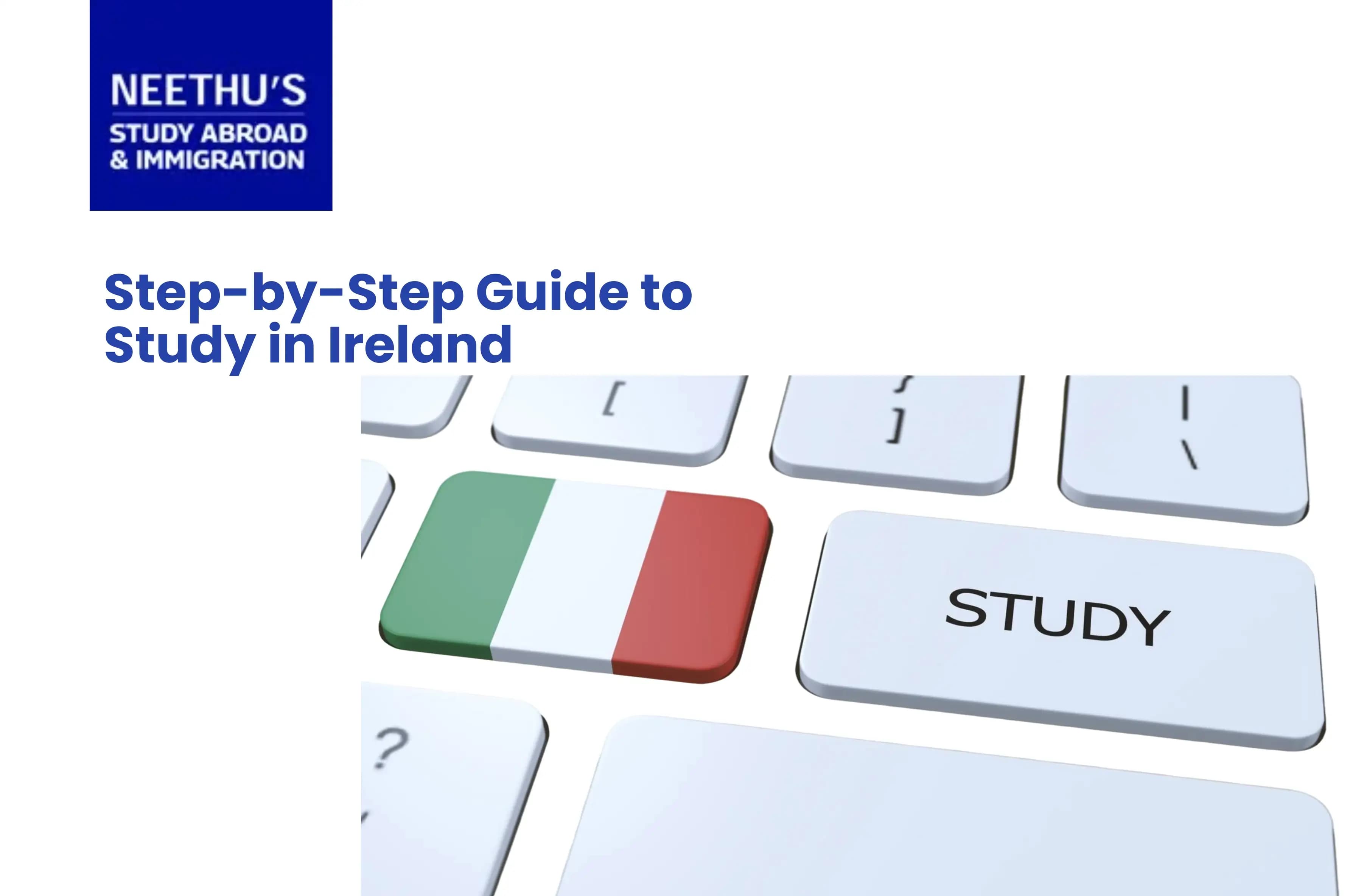Letter of Recommendation for Masters Program | How to Write a Perfect LOR
_24-10-2025_04-55-51%20PM.webp&w=3840&q=75)
Applying for a master's degree outside one's home country is more than excellent grades and a great statement of purpose (SOP). Of all the documents submitted, the Master's Program Letter of Recommendation (LOR) is a determining factor in enabling universities to gauge your scholarly potential, personality traits, and preparedness for graduate school. Applying for an MS in the USA, the UK, Canada, or Australia, an excellent LOR can make your application much stronger.
What is a Letter of Recommendation (LOR)?
A Letter of Recommendation (LOR) is a formal letter sent by your professor, supervisor, or mentor who has worked with you closely in an academic or professional environment. It analyzes your skills, accomplishments, and personal attributes from the recommender's point of view. In effect, it is a third-party endorsement of your qualifications and offers the admissions committee an understanding of how well you might succeed in a master's program.
To most graduate institutions, LORs serve as a bridge between your previous academic work and your future success in the desired field.
Role of LOR in Master's Admissions
Admissions committees hear thousands of applications from academically competent candidates annually. It is not merely your GPA or scores that set you apart, but also how your supervisors or professors speak of your skills, motivation, and ability to collaborate.
A good LOR for MS application:
-
Gives weight to your academic and professional accomplishments.
-
Brings out your soft skills like leadership, problem-solving, and communication.
-
Shows you are a good fit for advanced coursework or research.
-
Separates you from other applicants with equal credentials.
Briefly, a well-written LOR makes the selection panel imagine you as a competent and enthusiastic graduate student.
Who Should Write Your LOR?
Selecting the proper recommender is important. Preferably, you should request someone who:
-
Has supervised or taught you directly.
-
Can give concrete examples of your work habits and abilities.
-
Belongs to a position of respect (professor, department head, research supervisor, or project manager).
For academic LORs, it is best to get your professors who taught you the relevant courses. If you are applying for a professional program, your manager or your workplace supervisor can do it. Do not ask for your family or friends to do it, as they don't have professional standing and might end up making your application weaker.
Master's LOR Format and Structure
A Master's Program Letter of Recommendation is formal but personalized in its structure. The majority of universities accept a one-page letter (approximately 400–500 words). The format is usually as follows:
1. Introduction:
The recommender says who they are, their position, institution, and how they know the applicant.
2. Body Paragraphs:
Academic or job performance:
Concrete instances where the applicant performed outstandingly in classes, projects, or tasks at work.
Achievements and skills: Analytical skill, creativity, teamwork, leadership, or problem-solving.
Personality and character: Work ethic, integrity, and enthusiasm for learning.
3. Conclusion:
A summary of the strengths of the applicant, recommendation for the program, and contact details of the recommender for verification.
Key Elements of a Quality LOR
A solid LOR needs to be authentic, specific, and positive. Do not use general comments such as "He is a good student." Use measurable and actual examples instead. Key points are:
-
Credibility: Identify the recommender's name and authority.
-
Personalization: The letter should exhibit actual interaction with the applicant.
-
Specific examples: Mention projects, papers, or accomplishments that illustrate skills.
-
Balanced tone: Professional but encouraging language.
-
Program relevance: The LOR should align with the skills and goals of the master’s program.
For instance, if you’re applying for a Master’s in Computer Science, the recommender should highlight your research experience, coding proficiency, and innovative thinking.
Tips for Writing an Impressive LOR
If you’re guiding your recommender or drafting a reference draft for them, follow these tips:
- Begin in time: Provide your recommender with sufficient time—at least 3–4 weeks—to reflect and write.
- Give context: Include your academic records, SOP, and accomplishments to assist them in writing factually.
- Write formally: Use professional yet friendly language.
- Be brief: Use one page with concise, organized paragraphs.
- Quantify the details: Instead of "She did well," write "She ranked in the top 5% in her class.
- Be truthful: Refrain from exaggeration or lying, since universities tend to check references.
- Tailor each LOR: In case of applying to more than one university, tailor letters according to the area of focus.
Common LOR Errors to Steer Clear Of
Most students lose precious marks due to bad LORs. Steer clear of these common blunders:
-
Picking recommenders who hardly know you.
-
Filing template-like or generic letters.
-
Overly dramatic or exaggerated tone.
-
Grammatical or formatting errors.
-
Repetition of information already addressed in your SOP.
-
Omission of recommender's contact information or title.
A sloppy or general recommendation can damage your application more than benefit it. Strive always for quality, not quantity.
Master's LOR Sample Template
Below is a sample template of what your LOR could look like:
To Whom It May Concern,
I am glad to recommend [Student's Name] for admission to the Master's program in [Field] at your prestigious university. I have known [Student] for [duration] as their [professor/supervisor] at [Institution/Company]. Throughout this period, I noticed [his/her] steady academic achievement and dedication to studies.
[He/She] showed exceptional problem-solving and analytical skills, especially in [name specific project or course]. [Student's] curious mind and research-oriented attitude make [him/her] a perfect fit for graduate school.
Along with technical expertise, [Student] has shown leadership, teamwork, and communication skills that have been immense assets to our class/project team. I have no doubt [he/she] will apply the same energy and commitment to your program.
I highly recommend [Student's Name] for your master's program and wish [him/her] all the best for future endeavors.
Sincerely,
[Recommender's Name]
[Designation, Department]
[Institution/Organization]
[Email and Phone Number]
How Many LORs Are Needed for a Master's Application
Two to three Letters of Recommendation is the requirement of most universities. Students usually provide two academic LORs and one professional LOR if they have work experience. Always check the university's requirement before submitting the application.
Conclusion
A properly written Letter of Recommendation for a Master's Program can be the tipping point that makes your application move from good to exceptional. It is a personal endorsement of your academic commitment and potential in the future. Select your recommenders carefully, give them sufficient background information, and have the letter tailored to your program objectives.
Keep in mind that an LOR is not a formality—it's your voice expressed via another person's voice. Written authentically and thoughtfully, it can make a lasting impression with the admissions committee and get you into a top master's program.
Frequently Asked Questions
Who should I request a letter of recommendation for my master's program?
Request professors or supervisors familiar with your work and able to give concrete examples of your skills.
How long is a master's LOR supposed to be?
A master's LOR should be approximately one page or 400–500 words.
May I write my own letter of recommendation?
You may prepare a draft for your recommender's reference but should be signed and submitted officially by them.
How many LORs are required for studying abroad at a master's level?
Two to three letters of recommendation are usually required by most universities for master's admissions.






















_03-12-2025_01-17-26%20PM.webp&w=3840&q=75)
_02-12-2025_03-07-49%20PM.webp&w=3840&q=75)

_27-11-2025_04-06-24%20PM.webp&w=3840&q=75)
_25-11-2025_04-38-18%20PM.webp&w=3840&q=75)
_24-11-2025_03-20-26%20PM.webp&w=3840&q=75)
_22-11-2025_12-44-47%20PM.webp&w=3840&q=75)
_21-11-2025_04-17-47%20PM.webp&w=3840&q=75)
_20-11-2025_03-55-26%20PM.webp&w=3840&q=75)
_18-11-2025_04-00-40%20PM.webp&w=3840&q=75)
_15-11-2025_10-48-43%20AM.webp&w=3840&q=75)
%20(1)_14-11-2025_03-52-25%20PM.webp&w=3840&q=75)
_13-11-2025_03-02-38%20PM.webp&w=3840&q=75)
_08-11-2025_04-15-36%20PM.webp&w=3840&q=75)
_05-11-2025_04-01-50%20PM.webp&w=3840&q=75)
_05-11-2025_03-46-26%20PM.webp&w=3840&q=75)
_03-11-2025_03-31-09%20PM.webp&w=3840&q=75)
_04-11-2025_.webp&w=3840&q=75)
_04-11-2025_.webp&w=3840&q=75)
_28-10-2025_04-09-08%20PM.webp&w=3840&q=75)
_24-10-2025_05-10-31%20PM.webp&w=3840&q=75)
_22-10-2025_04-40-20%20PM.webp&w=3840&q=75)
%20(1)_21-10-2025_03-05-46%20PM.webp&w=3840&q=75)
_21-10-2025_02-43-15%20PM.webp&w=3840&q=75)
_17-10-2025_05-08-52%20PM.webp&w=3840&q=75)
_17-10-2025_04-54-54%20PM.webp&w=3840&q=75)
_15-10-2025_03-46-47%20PM.webp&w=3840&q=75)
_14-10-2025_03-42-40%20PM.webp&w=3840&q=75)
_14-10-2025_03-29-48%20PM.webp&w=3840&q=75)
_13-10-2025_03-48-51%20PM.webp&w=3840&q=75)
_11-10-2025_04-28-42%20PM.webp&w=3840&q=75)
%20(1)_09-10-2025_04-12-08%20PM.webp&w=3840&q=75)

_07-10-2025_02-55-25%20PM.webp&w=3840&q=75)
_07-10-2025_02-39-51%20PM.webp&w=3840&q=75)
_06-10-2025_03-42-37%20PM.webp&w=3840&q=75)
_03-10-2025_04-42-59%20PM.webp&w=3840&q=75)
_01-10-2025_11-12-12%20AM.webp&w=3840&q=75)
%20(1)_29-09-2025_02-54-12%20PM.webp&w=3840&q=75)

_26-09-2025_12-14-18%20PM.webp&w=3840&q=75)
_24-09-2025_04-44-26%20PM.webp&w=3840&q=75)
_23-09-2025_04-14-36%20PM.webp&w=3840&q=75)
_22-09-2025_04-08-09%20PM.webp&w=3840&q=75)
_20-09-2025_03-26-03%20PM.webp&w=3840&q=75)
_17-09-2025_04-06-42%20PM.webp&w=3840&q=75)
_15-09-2025_04-43-43%20PM.webp&w=3840&q=75)
_13-09-2025_12-17-49%20PM.webp&w=3840&q=75)
_12-09-2025_04-31-36%20PM.webp&w=3840&q=75)
_12-09-2025_04-17-03%20PM.webp&w=3840&q=75)
_10-09-2025_03-59-59%20PM.webp&w=3840&q=75)
_09-09-2025_04-11-16%20PM.webp&w=3840&q=75)
_09-09-2025_03-53-52%20PM.webp&w=3840&q=75)




















































_12-06-2025_03-40-35%20PM.webp&w=3840&q=75)

